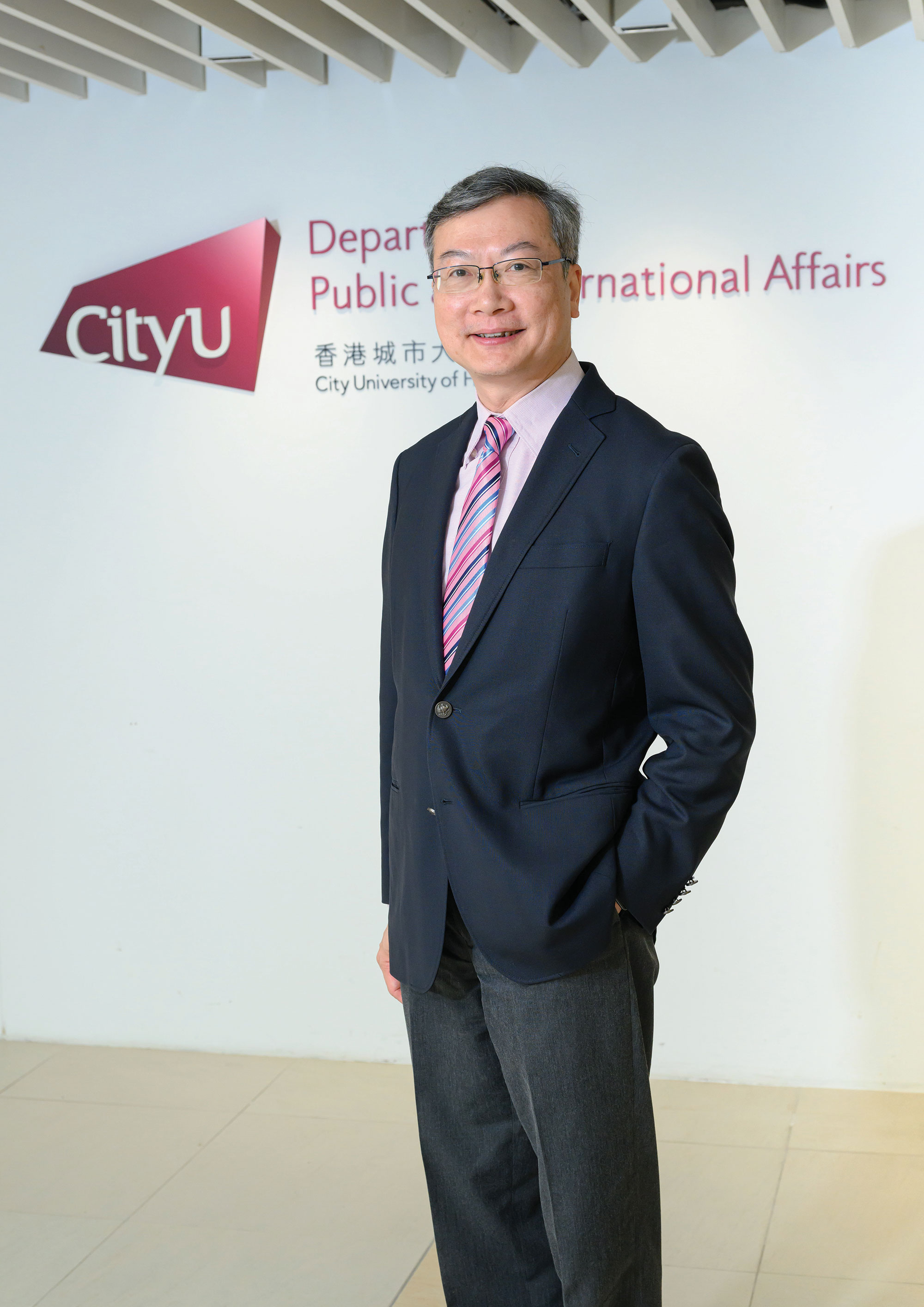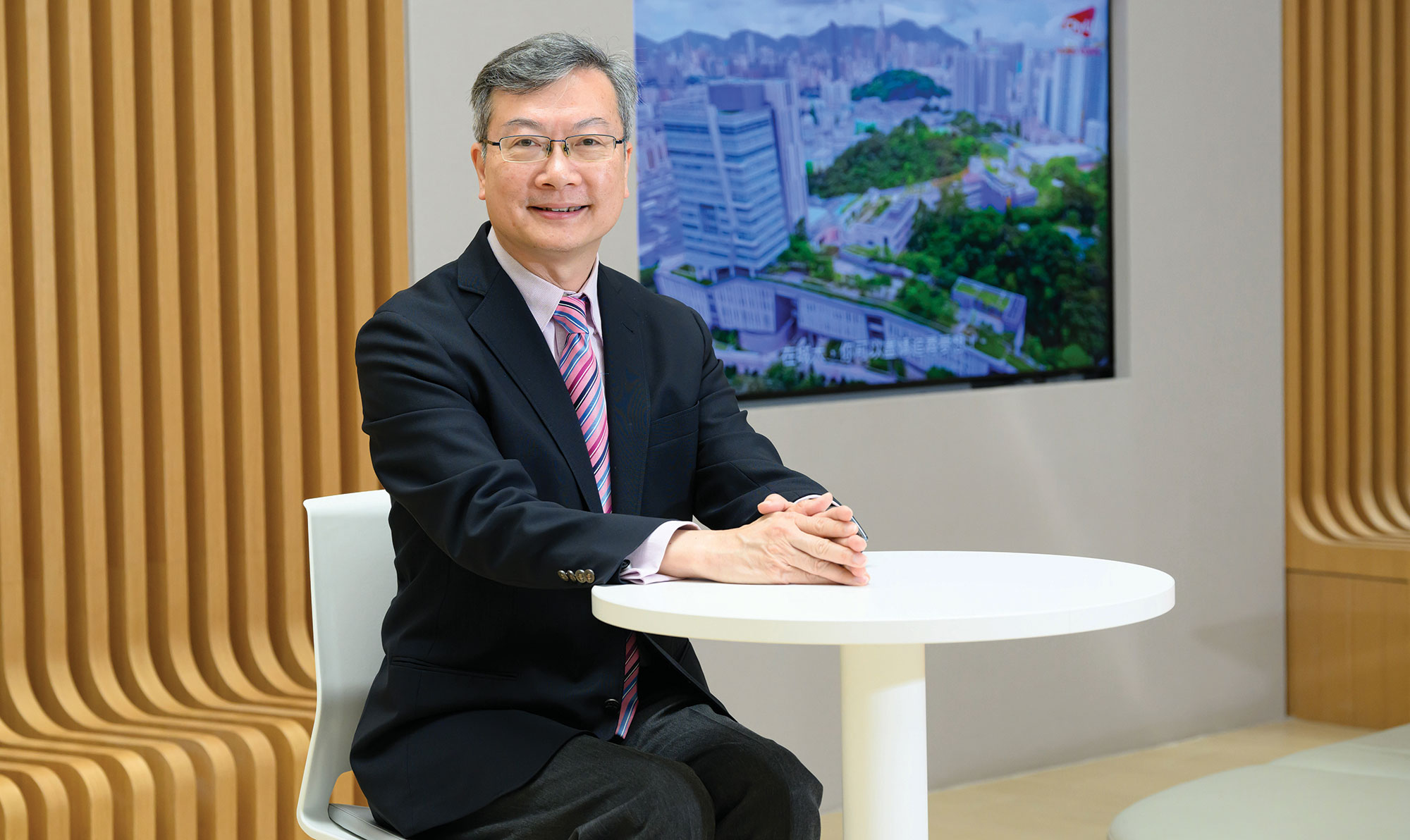Charting the Complexities of Cities
Leading CityUHK’s Department of Public and International Affairs, Professor Eddie HUI investigates the crux of urban policy and public management in the hope of enhancing citizens’ quality of lifeLife can take you on many paths, ultimately guiding you towards the same goal. No one understands this better than Professor Eddie HUI, who joined as Chair Professor to City University of Hong Kong’s (CityUHK) Department of Public and International Affairs (PIA) and became Head of PIA this February.
With a diverse background encompassing research, consultancy and professional expertise, Hui brings a wealth of knowledge and experience to his role. Before joining CityUHK, Hui honed a successful career working at major professional surveying firms and a tertiary institution in Hong Kong, where he was at the forefront of research and development. At the same time, he is credited for many groundbreaking projects that have helped shape the city’s urban landscape. His experiences, therefore, provided him with invaluable perspectives into the intricate dynamics of urban environments and set the stage for his endeavours in academia.
Building on his professional success, Hui pursued his PhD at the renowned Department of Land Economy at the University of Cambridge in the UK, where his exceptional achievements earned him the esteemed title of Fellow of the Cambridge Commonwealth Trust.
“I love teaching, learning and researching and knowing that through education, I can actually make a big impact on society,” he says.
Deciphering Urban Issues
With such an extensive academic background and practical experience, Hui’s expertise spans a wide range of disciplines and domains. His research and consultancy projects have investigated the complexities of urban policy, management and the broader field of public affairs.
As Hui’s opinions on Hong Kong’s urban development and property market are often featured in the media, his insights and innovative approaches have helped to shape some of the local urban landscapes, inform strategic decisions and drive sustainable development—something he holds dear to his heart.
Hui does not rest on his laurels. With over 29 years of industry experience and teaching, he hopes to bring his knowledge to CityUHK and inspire the next generation of students to carry the baton of knowledge and research, and continue having an impact on urban policy and management.
“Urban policy and management are all important here in Hong Kong,” he adds. “The discipline covers various topics such as planning, building, housing and real estate. This affects people from all walks of life. Most people in Hong Kong live in urban areas. All parties, including the private sector, NGOs and government, play a part in such an important topic.”
He explains that there is still much work to do. For example, further input should be given in future land use planning, urban renewal and public and social housing, not to mention sustainable development and climate change, all of which are underlying issues in Hong Kong’s politics and society.
I love teaching, learning and researching and knowing that through education, I can actually make a big impact on society
Professor Eddie Hui
All for a Better Future
“We all know that land is a big topic in Hong Kong. Much income comes from land resources, but it’s not just about the money. It’s the process of creating a better society for Hong Kong, so if the policy is wrong and there are repercussions, it would have a tremendous effect on the community.”
Hui says this is why he wants the next generation to be educated about any arising issues and to have the know-how to examine the effects, and recommend policies that can drive the community to make better decisions.
“We can make big impacts on society by providing opportunities for students to learn and grow, to have more knowledge and help the community to be even better,” he says.
Since the field is so wide, he says that PIA graduates will find many career opportunities, from the government sector—contributing to policy development, public administration, and public finance—to NGOs, which work on social advocacy, community development and policy research.
“Some of them might even want to pursue their studies further and develop a career in research and academia,” he says. Regardless, Hui sees his students as the engines of the future.
New Momentum
With this vision, he has some goals for the department in mind. He firmly believes in the power of interdisciplinary research and social innovation. Interdisciplinary education is key, he adds, allowing students to develop the skills and tools needed to analyse and evaluate all kinds of policy issues, develop innovative ideas and nurture cross-sectoral leadership. All of these are important to driving impactful changes in the urban landscape.
He says understanding the relationship between technology and society, along with vigorous interdisciplinary research, can lead to substantial knowledge transfer activities.
To this end, Hui has a bucket list of things he wants to achieve within the department.
“My goals, of course, are always to scale new heights,” he says. “My vision is that PIA prepares the next generation of leaders who can work across public, non-profit and private sectors at the local, national and global levels and strive to produce knowledge that fosters ethical, prosperous, and well-functioning organisations and societies,” he says.
For starters, he wants to prioritise technology and social innovation in PIA’s research and teaching as this is the future direction in his opinion. Drawing on a myriad of talents and expertise within the department, he believes diversity will be important to help bring new dimensions to research.
“We can have colleagues good at health issues, those who are good with technology and analytics, and who are truly international, coming from different parts of the world to bring diverse perspectives,” he adds.
Hui also hopes to introduce a range of new courses and exchange programmes covering areas like policy management, international relations and digital technologies. This way, as a department, everyone can move forward together and build momentum to bring positive changes to society.
“It brings me great joy, and I’m delighted to see many energetic and positive contributions. This brings new energy and dynamics, which we want to see more of,” he concludes.




